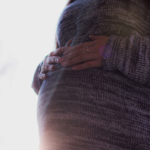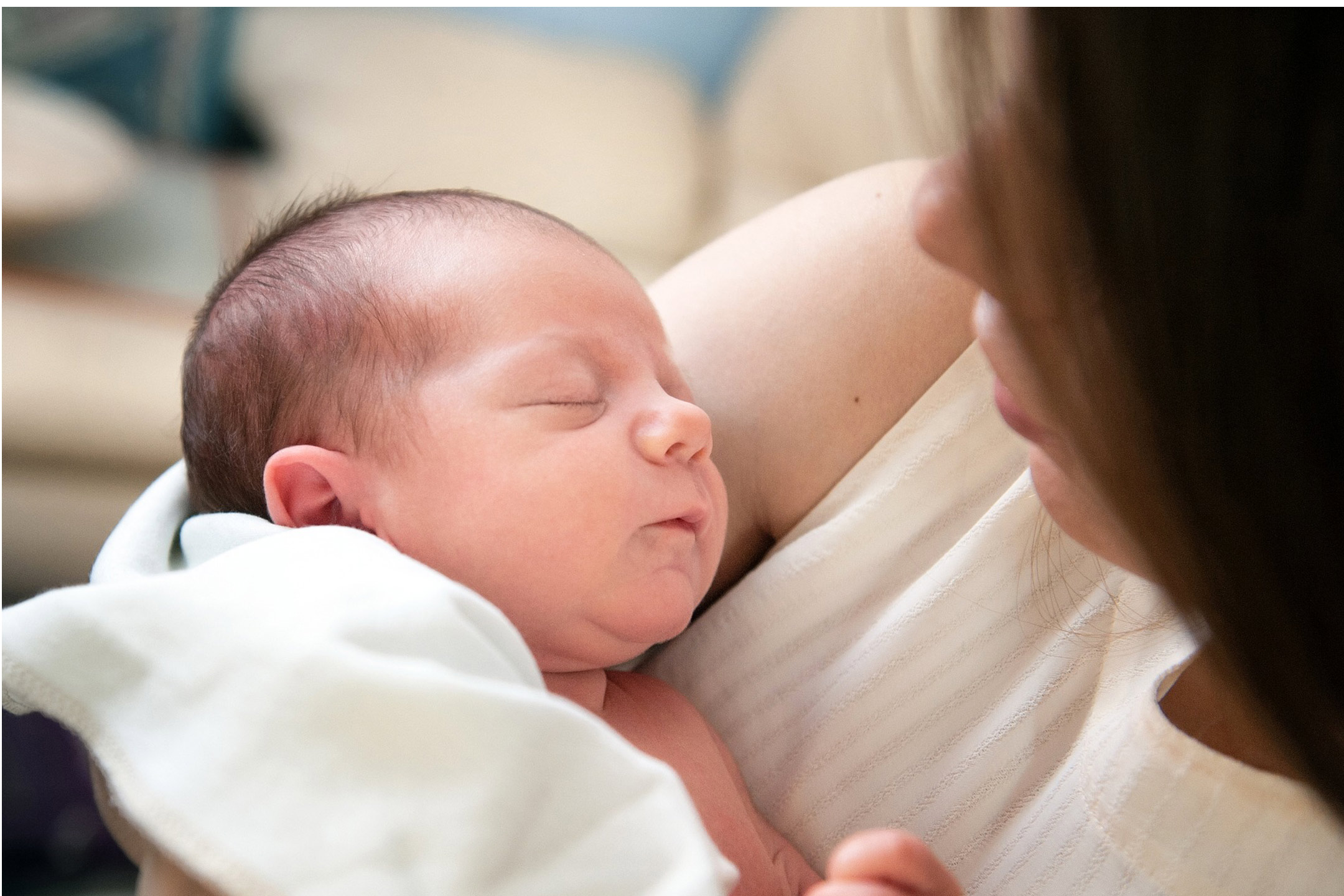
21 Sep Would you do anything different if you were to have another baby?
More than 6,000 women told us what they wanted for their next pregnancy and birth. Here’s what they said report researchers Hazel Keedle, Daniella Susic and Hannah Dahlen
Many women want a different kind of pregnancy and birth the next time around. Many want to see the same one or two midwives throughout and want to choose where they give birth. And when the time comes, they want a vaginal birth with less intervention.
This is what thousands of Australian women told us when we asked if they would do anything differently if they had another baby.
We published our findings recently in the British Medical Journal Open.
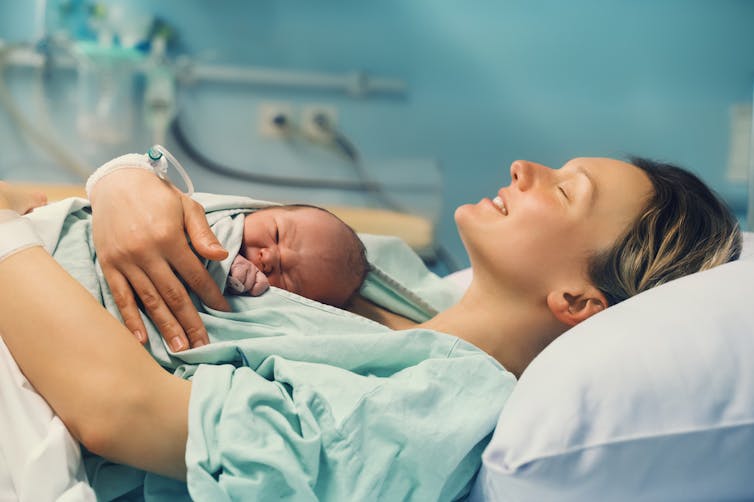
What the researchers did
In 2021, we undertook Australia’s largest national study of birth experiences. As part of that, we asked women, “Would you do anything different if you were to have another baby?”
A total of 6,101 women left comments. More than 85% of comments were from women who said they’d do things differently the next time around.
Several themes emerged.
‘Next time I’ll be ready’
The largest group of comments (39.2%) were from women who wanted to avoid a repeat of their previous pregnancy and birth experience. They wanted to better advocate for themselves, get more informed about their choices, and avoid certain birth interventions.
For example, there were more than 500 comments from women who would try to avoid having their next labour started manually, known as an induction of labour. A woman from Western Australia who ended up having a caesarean said:
I would 100% opt for no induction. I believe it’s the reason that led me to a C-section
Australia has a high rate of induction, especially for women having their first babies (41% induced labour rate for women having their first baby). Women feel they are inadequately informed about the process of induction and are not given a choice or alternative options. We have also shown an induction of labour in Australia can lead to further medical interventions. High rates of medical intervention, such as induction, can lead to poorer maternal and neonatal outcomes when used excessively.
‘I want a specific birth experience’
This was the second largest category (28.5% of comments). Here, most women said they wanted their next birth to be a vaginal birth (1,735 comments), and some would opt for a caesarean (438 comments).
Of the women wanting a vaginal birth, 1,021 comments related to wanting the next birth at home.
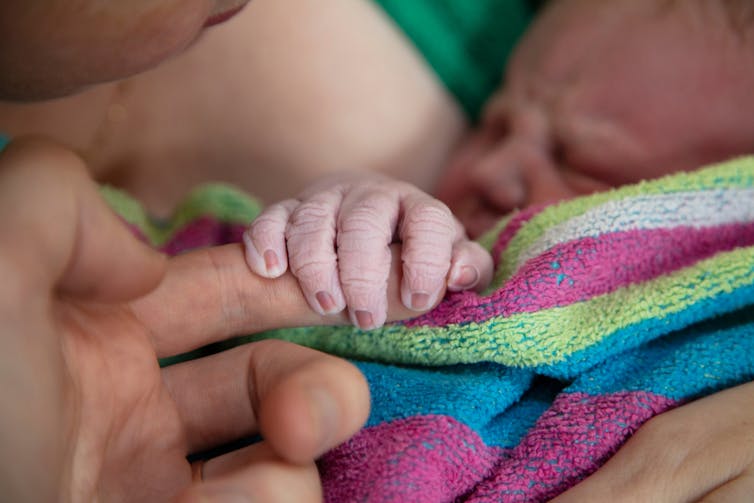
Shutterstock
‘I want a specific model of care’
Women also said they wanted to be better prepared by getting better support. This ranged from a more supportive partner, hiring a doula and choosing their care provider.
Some 17.8% of all comments, the next-largest group, identified a specific model of maternity care. Women wanted to access a more supportive model that would respect their choices and wishes.
Most women in this group wanted “midwifery continuity of care”. This is where women are cared for by one or two midwives throughout their pregnancy, labour and birth, and into the post-birth period.
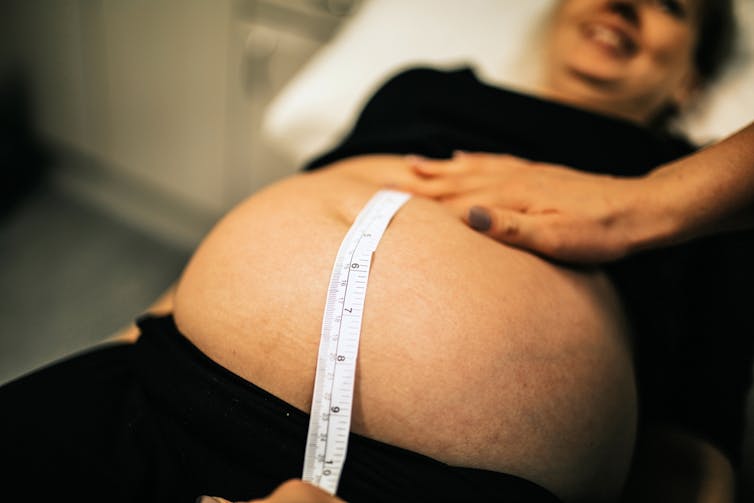
Shutterstock
A woman from Victoria, who told us she wanted continuity of care next time around, said:
It is very important to me that next time I have a care provider who I fully trust, who has a good understanding of my birth preferences and who I know will be a strong advocate for me and who will encourage, empower, support and believe in me and my ability to birth my baby.
Midwifery continuity of care is available now in many public hospitals and is commonly called midwifery group practice or caseload midwifery. Some women access this type of care through private midwives. These charge a fee (there are some Medicare rebates) and can support women to have births at home.
However, access to midwifery continuity of care is still limited and booked out early, meaning many women miss out, especially if they live in regional or remote regions.
‘I want better access’
This group of comments (2.9%) included ones from women in regional and remote parts of Australia.
They said they wished they had access to more local maternity services and equitable access to models that offer continuity of care and home birth, such as private midwives.
A woman from a remote town in New South Wales said:
If I ever fell pregnant again. I would move to a bigger town. Obstetric care in the bush is very much lacking. Rural women like myself are lucky to even be alive after our experiences.
With many maternity units in rural and remote areas shutting down, women are forced to travel big distances and have fewer maternity care options than women who give birth in cities.

Shutterstock
‘I don’t want to change anything’
Some 10.2% of comments were from women who didn’t want to change anything the next time around.
Of these, just under half (47%) were from women who received midwifery continuity of care.
This is significant as midwifery continuity of care only represents 15% of maternity models in Australia.
Why are birth experiences important?
We’ve shown that many women who reflect on their experience of pregnancy and birth wish they had made different decisions and wish they had a more positive experience to look back on.
A negative birth experience can lead to birth trauma and post-traumatic stress disorder.
Some of this may be unavoidable, such as when emergency situations arise during labour. But trauma can also be related to the way women are respected, informed and cared for.
What happens next?
What women are asking for is humanised, evidence-based maternity care. So it’s time to act if we are to avoid the type of experiences highlighted during the current NSW Select Committee on Birth Trauma.
With evidence from more than 4,000 submissions, this reminds us we often fail women during one of the most vulnerable yet potentially transforming experiences in their life. We hope women’s voices are finally heard.![]()
Hazel Keedle, Senior Lecturer of Midwifery, Western Sydney University; Daniella Susic, Clinical Academic Obstetrician, UNSW Sydney, and Hannah Dahlen, Professor of Midwifery, Associate Dean Research and HDR, Midwifery Discipline Leader, Western Sydney University
This article is republished from The Conversation under a Creative Commons license. Read the original article.


